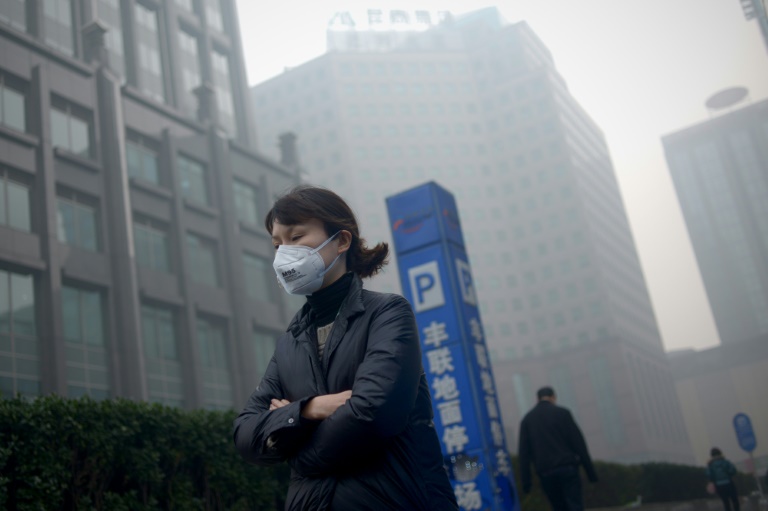Heavy air pollution smothering China
Beijing maintained an “orange” pollution alert, the second-highest level closing highways, halting or suspending construction and prompting a warning to residents to stay indoors. “If in a few years the situation does not change, we will consider leaving”, the Associated Press news agency quoted Yin Lina, a woman who had bought her young daughter to hospital, as saying.
As pollution indexes soared to “beyond index” yesterday, students at middle and primary schools were given the option to study from home, the Beijing Youth Daily reported, quoting the Beijing Municipal Commission of Education. Some suburban neighbourhoods logged levels up in the 900s on Monday.
Concentrations of PM2.5 – the pollutants that pose the greatest risk to human health – reached as high as 269 micrograms per cubic metre in Tianjin city and 202 in Hengshui in Hebei province as of 9am, data from the China National Environment Monitoring Centre showed.
The smog surged in northern China on Monday during President Xi Jinping’s visit to Paris, where he vowed to work with USA counterpart Barack Obama and other world leaders to stem carbon emissions and fight climate change.
Schoolchildren were forced to stay indoors rather than playing outside as heavy smog engulfed the city, reducing visibility and hiding the Chinese capital’s skyline.
People in the Chinese capital complained of a smoky, pungent odour that led many to wear tight-fitting face masks like this one.
As the heavy air pollution entered its fifth day in Beijing – far exceeding the 72-hour standard to issue a red alert – the public and media began to raise doubts over the authorities’ pollution control efforts.
China’s cities, following decades of economic growth and a widespread surge in vehicle ownership, rate among the world’s dirtiest urban areas.
Airlines canceled more than 30 flights from Beijing and Shanghai, many to highly polluted Shaanxi province, which is a key coal producer.
The city got off to a good start this year, but a spate of unusually cold days and early snow in November prompted citizens to turn on their winter heating systems and bid farewell to blue skies as the notorious smog rolled in. For most of that month, persistent smog shrouded the capital.
Air quality worsened on Friday and deteriorated throughout the weekend. According to the action plan, Beijing sets out to reduce particle density by 25 percent or more on the PM2.5 scale, until 2017.
Inspection teams sent by the Ministry of Environmental Protection to oversee implementation reported on Monday that at least 11 construction sites and cement-making plants continued operations.








